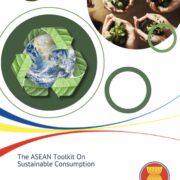THE United Nations Arbitral Tribunal at The Hague in the Netherlands has decided to hear a second round of oral arguments from the Philippines regarding disputed territory in the South China Sea.
Deputy Presidential Spokesperson Abigail Valte, a member of the high-level delegation representing the Philippines in the Netherlands, said on Friday, July 10, that the five-member Tribunal told the Philippines to prepare for another round of presentations to be held Monday, July 13.
The decision comes after two days of oral arguments, which the tribunal has been hearing since Tuesday, July 7. The Philippines has requested that China’s claims to nearly all the South China Sea be deemed invalid, saying Beijing’s actions have permanently damaged vast coral reefs and have stepped on the rights of other nations.
For the round on Monday, the tribunal will be asking additional questions about Manila’s petition against Beijing in the territory.
“The Philippine side has undertaken sufficient preparation to ensure that the best answers will be provided to the questions expected to be propounded by the tribunal during the second round,” Valte said.
Manila is also trying to prove that the tribunal has the jurisdiction to hear the country’s case against China.
The Philippines is the first country to challenge China’s nine-dash line claim in the South China Sea, claiming that Beijing has violated international maritime laws.
Foreign Secretary Albert del Rosario said the case is important “not just to our country but to the entire world, owing to its impact on the application of the rule of law in maritime disputes.”
Representatives from other countries that have also been contesting ownership of the disputed regions – Brunei, Malaysia, Taiwan, Thailand and Vietnam – were also present at this week’s hearings.
“China opposes any action made by the Philippines to initiate and push ahead with the arbitration,” Chinese foreign ministry spokeswoman Hua Chunying said in a news conference in Beijing on Tuesday, July 7, adding that Manila agreed not to proceed in the ‘unilateral’ way it has.
“China has on many occasions expounded its position by neither accepting nor participating in the arbitrary procedure unilaterally initiated by the Philippines in breach of the agreement repeatedly confirmed with China as well as the Philippines,” she said.
Philippine officials, however, have denied such an agreement, claiming China has previously agreed to solve conflicts based on international law. Among these includes the 1982 United Nations convention allowing coastal states to exclusively take full advantage of resources within 200 nautical miles of waters from their territory.
Zhao Jianhua, China’s ambassador to Manila, said Beijing could not be forced to follow any decision made by the tribunal.
“The result of the arbitration is not binding as our side is concerned. This is the legal right of China,” he told reporters last month.
Zhao added that Beijing would remain open to negotiating with the Philippines to settle the conflict, but the Philippines on Tuesday, July 7 rejected its offer of bilateral talks.
Del Rosario called the 1982 convention, which went into effect in 1994 and has been signed by more than 160 states, a “great equalizer” that provides smaller nations the opportunity to stop more powerful states from trampling their territories.
He suggested, however, that the convention may be undermined if it could not be used to stop China from violating the maritime rights of other countries, the Associated Press reported.
“If China can defy the limits placed by the convention on its maritime entitlements in the South China Sea and disregard the entitlements of the Philippines under the convention, then what value is there in the convention for small states parties as regards their bigger, more powerful and better-armed neighbors?” he asked.
The resolution of the dispute will take time, Jay Batongbacal, a maritime law expert at the University of the Philippines, told Inquirer on Wednesday, July 8. It could take three months before the tribunal issues a decision, and a hearing on the merits of the case could take even longer, he said.
For the Philippines, Batongbacal said it would help to identify its interests in the South China Sea.
“We haven’t really articulated and identified our interests. It’s very general. Everybody wants to protect his territory. Everybody has that interest. We have to settle among ourselves what really are our interests in the South China Sea,” he told Inquirer.
Among those directly affected by China’s reclamation activities in the Sea are fisherfolk communities enduring economic displacement, who are now seeking government assistance for losing their source of income.
About 12,000 fisherfolk from Bataan, Palawan, Pangasinan and Zambales are being adversely affected by the territorial conflict, according to data from the Bureau of Fisheries and Aquatic Resources. In Zambales alone, local fisherfolk who were barred by Chinese naval forces lost about P300,000 worth of a week’s catch, the bureau reported.
China’s activities have also cost the local economy losses worth P4.8 billion.
“We are focusing on the arbitration in the Netherlands but we should not ignore that each day they are unable to fish, fisherfolk families face the immediate threat of starvation,” Hicap said, according to Manila Bulletin. (With reports from CNN, Inquirer, GMA News, Manilla Bulletin, Philstar, Rappler and The Associated Press)





